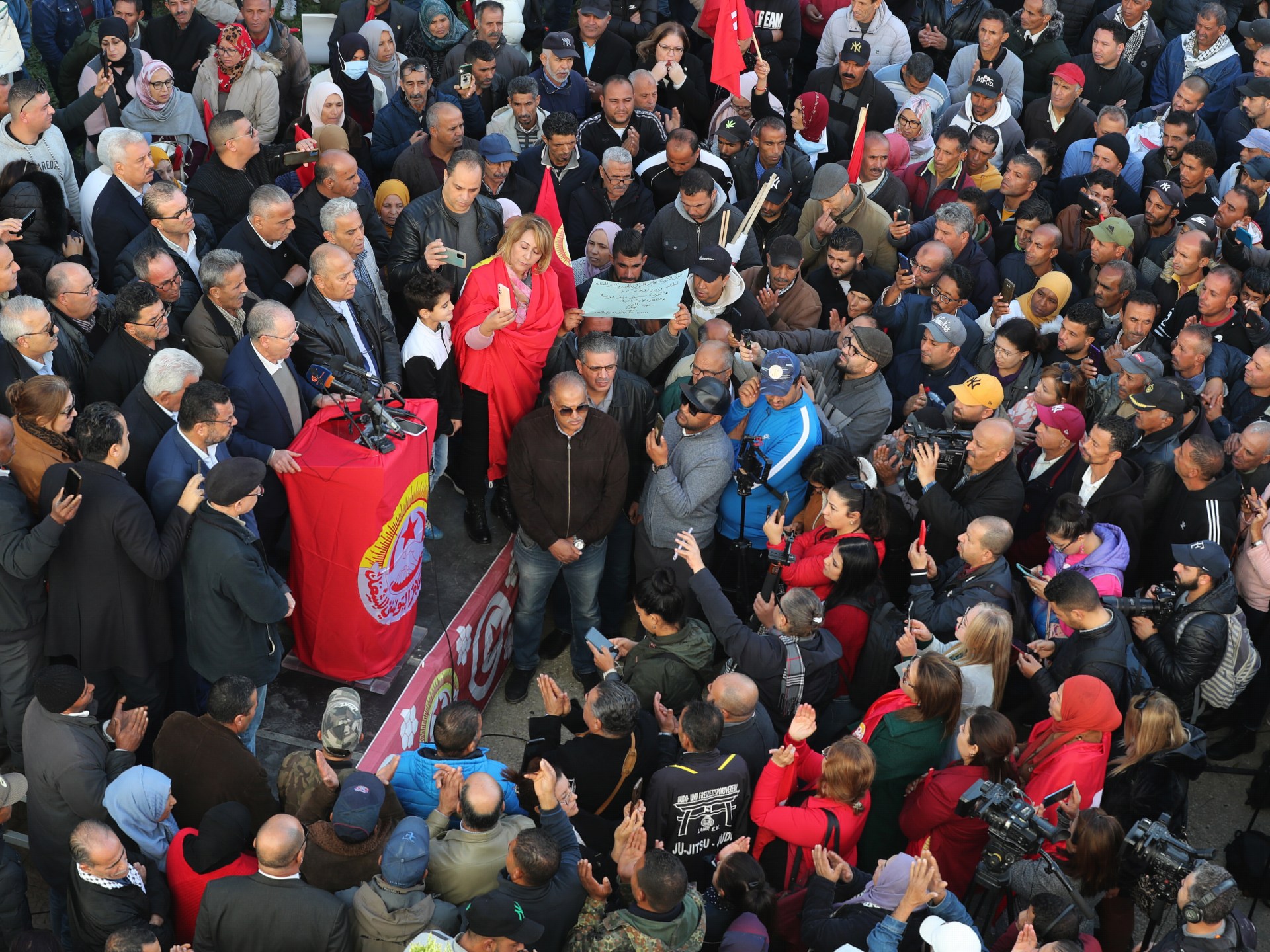Today, Saturday, the Tunisian General Labor Union (the largest labor union in the country) criticized the current political path, and waved important decisions in the face of the economic and social crisis in the country.
In the federation's most recent statements, the Assistant Secretary-General of the Labor Union, Hafez Hafez, described the current crisis in Tunisia as complex and complex.
Hafeez said that the current political path in Tunisia represents a regression and retreat from the path of July 25, 2021, after President Qais Saeed ruled alone.
He added that Saeed unilaterally drafted an electoral law tailored to him, abolishing parties and all political components in the country.
The trade union official believed that the government's options for dealing with the economic crisis depend on what he described as a brutal liberal choice and blaming the poor and vulnerable classes for the cost of the crisis.
Hafeez stressed that the Labor Union cannot remain silent in front of this situation, and that the administrative body of the organization will have decisions at the level of the event and at the level of the depth of the crisis, as he put it.
And last December, the Tunisian General Labor Union announced the start of consultations with civil society organizations and forces in order to formulate an initiative aimed at - what it called - saving the country.
At that time, the Secretary-General of the Union, Noureddine Al-Taboubi, demanded that the electoral process be stopped, after the unprecedented reluctance to hold legislative elections, and that measures be taken to get the country out of its crises.
It rises to the rank of conspiracy against state security
And Tunisian President Qais Said said - yesterday, Friday - that the actions that some people take rise to the rank of conspiracy against the internal and external security of the state, as he put it.
Saeed made these statements during his meeting with the Ministers of Justice and the Interior, and after explicit calls for the president to step down and calls on state institutions not to obey his orders issued by opposition political leaders.
The opposition Salvation Front (which includes parties including the Ennahda movement, which was the main force in the dissolved parliament) had called for demonstrations on January 14, on the occasion of the anniversary of the revolution.
And the Tunisian president decided - yesterday, Friday - to dismiss the Minister of Trade and the governor (governor) of Sfax, the second largest city in the country, amid an economic crisis and strong political divisions.
And the Tunisian presidency announced, in a brief statement without giving clear reasons, "the termination of the duties of the Minister of Trade and Export Development, Fadela Rabhi Ben Hamza."
The first member of Naglaa Boden's government to be dismissed by Saeed
It is reported that Bin Hamza, who was appointed Minister of Trade and Export Development in November 2021, is the first member of Naglaa Boden's government to be dismissed by Saeed.
The Tunisian president also decided to "end the duties of the governor of Sfax, Fakher Al-Fakhfakh," whom he had appointed in June 2022.
Sfax had experienced successive crises, the most prominent of which was related to the accumulation of waste, as the city witnessed massive protests and demonstrations condemning the state's environmental status.
This development comes as Naglaa Boden's government - appointed by President Kais Saied - faces criticism over the high cost of living.
Tunisia recorded the highest inflation rate in 40 years, as the country recorded last December a rise in inflation to 1.1%, a rate that is expected to rise to 11% this year, according to Central Bank Governor Marwan Abbasi.

